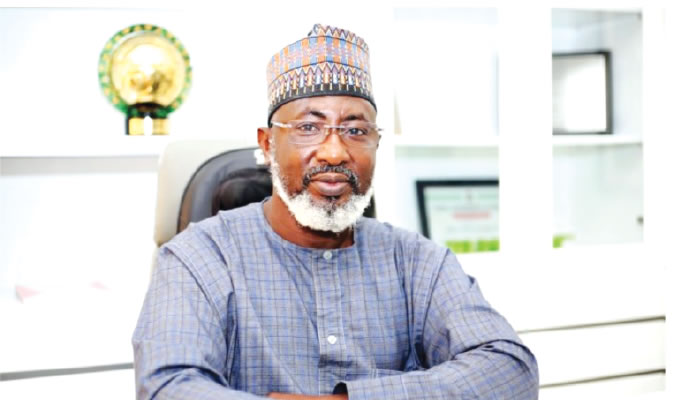The Nigeria Football Federation (NFF) has declared an all-out war against corrupt refereeing practices within the Nigerian football league system, threatening a decade-long ban for any official found guilty of manipulating match outcomes. This decisive action comes in response to growing concerns about the integrity of the league, with allegations of match-fixing and biased officiating casting a dark shadow over the sport. The NFF aims to restore public trust and create a level playing field for all clubs by implementing stricter measures and enhancing scrutiny on referees’ performances. This announcement underscores the federation’s commitment to cleaning up the sport and fostering a more transparent and competitive environment.
The prevalence of corrupt practices, including accepting bribes to influence match results, has severely eroded the credibility of the Nigerian league. Suspicions have arisen regarding dubious penalties awarded, questionable offside calls, and inconsistent application of the rules, all seemingly designed to favor specific teams. These issues have fueled discontent among clubs, players, and fans, ultimately diminishing the overall quality and appeal of the league. The NFF recognizes the damaging impact of these practices and aims to root out corruption at its source by holding referees accountable for their actions. The prospect of a 10-year ban serves as a powerful deterrent, sending a clear message that such behavior will not be tolerated.
The NFF’s strategy to combat corruption will involve a multi-pronged approach. Increased surveillance and monitoring of referees’ activities, both on and off the field, will be implemented. This might include scrutinizing communication records, financial transactions, and social interactions to identify any suspicious patterns or connections with individuals involved in match-fixing. Furthermore, the NFF plans to strengthen its investigative mechanisms, enabling more thorough and efficient probes into allegations of misconduct. Collaborations with law enforcement agencies will also be explored to ensure that criminal charges can be pursued against individuals found guilty of corruption.
Beyond punitive measures, the NFF also plans to invest in educational and training programs for referees. These programs will emphasize ethical conduct, the importance of impartiality, and the consequences of engaging in corrupt practices. By reinforcing the principles of fair play and professional integrity, the NFF hopes to cultivate a culture of accountability among referees. This commitment to education aligns with the federation’s long-term goal of establishing a more robust and trustworthy officiating system. Regular assessments and performance evaluations will also contribute to maintaining high standards and identifying any potential biases or vulnerabilities that might compromise the integrity of matches.
The success of the NFF’s initiative will depend heavily on the cooperation and support of various stakeholders. Club owners, players, coaches, and even fans have a crucial role to play in reporting suspected instances of corruption. Creating a whistleblowing mechanism that guarantees anonymity and protection for informants can encourage individuals to come forward without fear of reprisal. Building a culture of transparency and accountability within the entire football ecosystem is paramount to achieving lasting change. The NFF’s commitment to tackling corruption must be matched by a collective effort from all involved to eradicate this menace from the sport.
Ultimately, the NFF’s declaration of war against corrupt refereeing practices reflects a crucial step towards restoring integrity and public confidence in Nigerian football. By implementing stringent measures, investing in education and training, and fostering a culture of transparency, the federation aims to create a level playing field where talent and sportsmanship prevail over manipulation and corruption. The threat of a 10-year ban sends a powerful message that such behavior will no longer be tolerated. This sustained effort to combat corruption is essential not only for the health of the Nigerian league but also for the future development and growth of the sport in the country. The success of this initiative will ultimately depend on the collective commitment of all stakeholders to uphold the principles of fair play and integrity.


